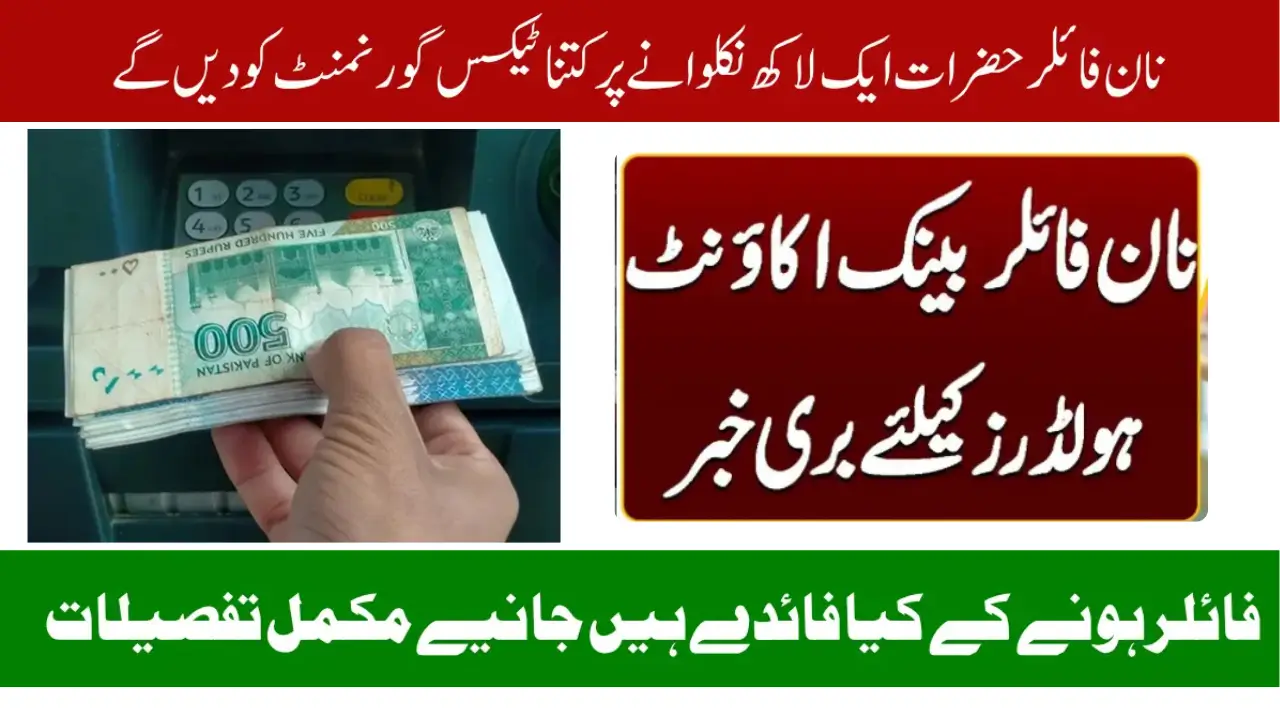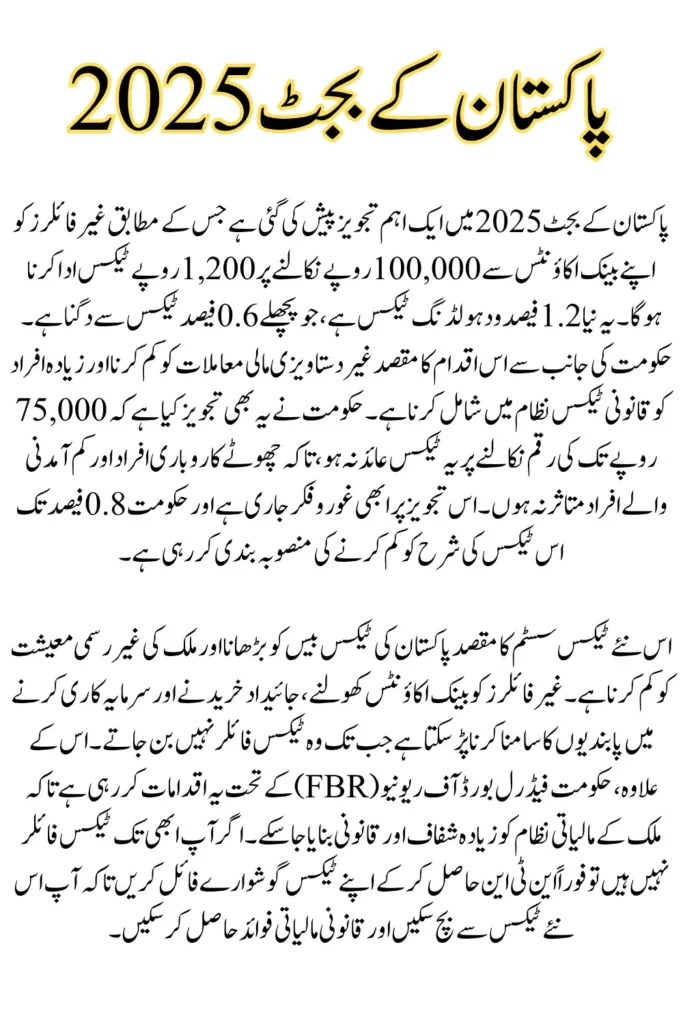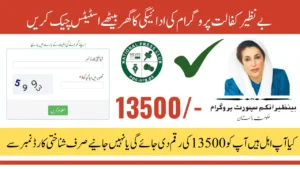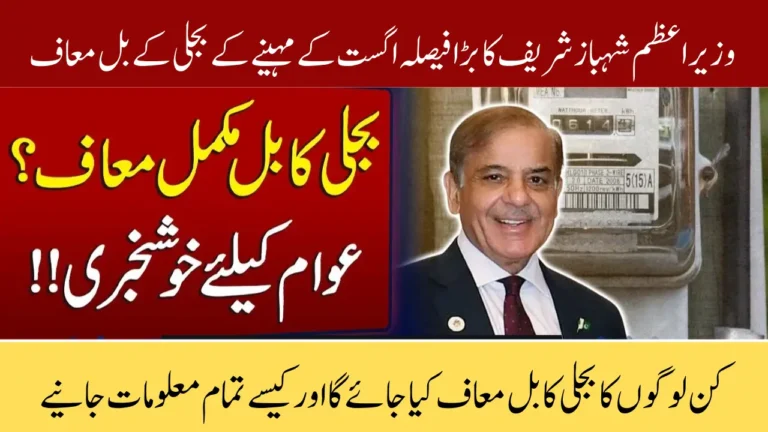Pakistan Budget 2025: ATM Cash Withdrawals Tax For Non-Filers

Pakistan Budget 2025 For Non-Filers
Pakistan Budget 2025 has introduced some significant proposals aimed at improving the country’s financial transparency and strengthening the tax base. One of the most talked-about changes is a new withholding tax system, which will directly affect those who have not yet filed their taxes. Non-filers will now face an increased tax of Rs1,200 on every Rs100,000 withdrawn from their bank accounts. This article will explore the key proposals of the budget, the reasons behind this policy, and its potential impact on both filers and non-filers.

Understanding the Rs1,200 Withholding Tax on Withdrawals
In an effort to bring more people into the formal financial system, the Pakistan Government has proposed a 1.2% withholding tax on large cash withdrawals. For non-filers, this means that if you withdraw Rs100,000 from your bank, the government will automatically deduct Rs1,200 as tax. This is a significant increase from the previous 0.6% tax rate, which has now been doubled.
The aim of this change is to discourage undocumented transactions and cash-based economies. However, it’s important to note that this proposal is still under review, and there is a possibility that the tax rate might be revised to 0.8% after committee recommendations. Additionally, a Rs75,000 exemption threshold is being discussed for smaller withdrawals, which means withdrawals below Rs75,000 could remain tax-free.
Key Figures from the Budget 2025
To make the details easier to understand, here is a table summarizing the main proposals related to the new withholding tax system:
| Proposal / Metric | Details |
|---|---|
| Proposed tax rate for non-filers | 1.2% (Rs1,200 on Rs100,000) |
| Possible revised rate | 0.8% |
| Current rate | 0.6% |
| Exemption threshold | Rs75,000 (under review) |
| Collection mechanism | Deduction by banks at withdrawal |
| Restrictions on non-filers | No new accounts, limited property/investment access |
| Expected additional revenue | Tens of billions of rupees |
This table shows how the new policy will increase the cost of cash transactions for non-filers and strengthen overall tax collection.
Why Is This Tax Being Implemented?
The primary goal behind this withholding tax increase is to expand Pakistan’s tax net and reduce the country’s reliance on the informal economy. According to the Federal Board of Revenue (FBR), a significant amount of financial activity still happens outside the formal tax system, leading to a loss of revenue. By introducing this measure, the government hopes to bring more people into the fold, ensuring that they contribute fairly to the national economy.
In addition to increasing the tax base, this policy also seeks to reduce money laundering, encourage the use of digital payments, and improve financial transparency. By taxing non-filers who engage in large cash transactions, the government aims to create a clearer financial system where all transactions are traceable and taxable.
How Will Non-Filers Be Affected?
For non-filers, this policy could result in additional costs when making large cash withdrawals. The new 1.2% tax would mean that if you withdraw Rs100,000, the bank will deduct Rs1,200 before handing over the cash. This will have a significant impact on those who have not registered as taxpayers.
Moreover, there could be additional restrictions for non-filers, such as limited access to banking privileges, investments, and even the ability to buy property. The government is also exploring the possibility of restricting non-filers from opening new bank accounts or investing in financial assets until they become tax-compliant.
The intention behind these measures is to encourage non-filers to register with the FBR, file their taxes, and become part of the formal system. By doing so, they will not only avoid the withholding tax but will also benefit from lower tax rates and greater access to financial services.
How Does This Compare to Filers?
In contrast, tax filers will have a significant advantage over non-filers under the new policy. Those who have already registered with the FBR will not face the Rs1,200 tax on Rs100,000 withdrawals. Instead, they may enjoy lower rates or even complete exemption from this tax.
The government wants to incentivize individuals and businesses to join the formal tax system by offering them better banking privileges, easier access to investments, and fewer restrictions on their financial transactions. Essentially, becoming a tax filer will give you the financial freedom to carry out your transactions without the added burden of extra taxes.
Steps to Avoid Paying the Tax
If you’re still a non-filer, the best course of action is to register as a taxpayer with the Federal Board of Revenue (FBR). This is a straightforward process that involves obtaining a National Tax Number (NTN) and filing your annual returns. By becoming a tax filer, you can avoid the Rs1,200 withholding tax and ensure that you have access to all the banking privileges and financial services you need.
For those who don’t want to become a filer but still want to avoid the withholding tax, you could consider making withdrawals below Rs75,000 (if the exemption threshold is approved). By doing so, you can stay below the tax radar and avoid the new charges.
The Rs75,000 Exemption: Who Will Benefit?
The government is considering an exemption for withdrawals of less than Rs75,000. If approved, this change would help small traders, daily wage earners, and individuals who rely on cash transactions for their routine expenses. For people in this category, the Rs1,200 tax wouldn’t apply unless they exceed the Rs75,000 threshold.
This measure could help protect those who need to access cash but do not have the means or resources to become tax filers. However, larger businesses and individuals who withdraw Rs100,000 or more will still face the new tax, ensuring that higher-income groups contribute to the country’s tax revenue.
Impact on Small Traders and Low-Income Groups
While the new tax may help streamline the financial system, some experts have expressed concerns about its potential impact on small traders and low-income individuals. These groups often rely on cash transactions and may not have the resources to become registered tax filers.
To mitigate these concerns, the government will likely need to offer support and guidance for small businesses and individuals, helping them transition into the formal financial system without feeling overwhelmed by the tax registration process. Additionally, creating awareness campaigns about the benefits of becoming a taxpayer will be crucial in getting people on board.
Conclusion
Pakistan Budget 2025 represents a significant shift towards building a more transparent and accountable financial system. The new Rs1,200 tax on Rs100,000 withdrawals for non-filers aims to encourage more people to become part of the formal tax system, thereby increasing the national revenue and reducing the reliance on undocumented transactions.
For non-filers, the immediate step to avoid the extra tax is to register as a taxpayer and start filing annual returns. While this change may pose challenges in the short term, it is ultimately designed to create a fairer, more equitable financial system where everyone contributes to the economy.
If you haven’t yet registered as a tax filer, now is the time to take action and benefit from the full range of financial privileges available to compliant citizens.














